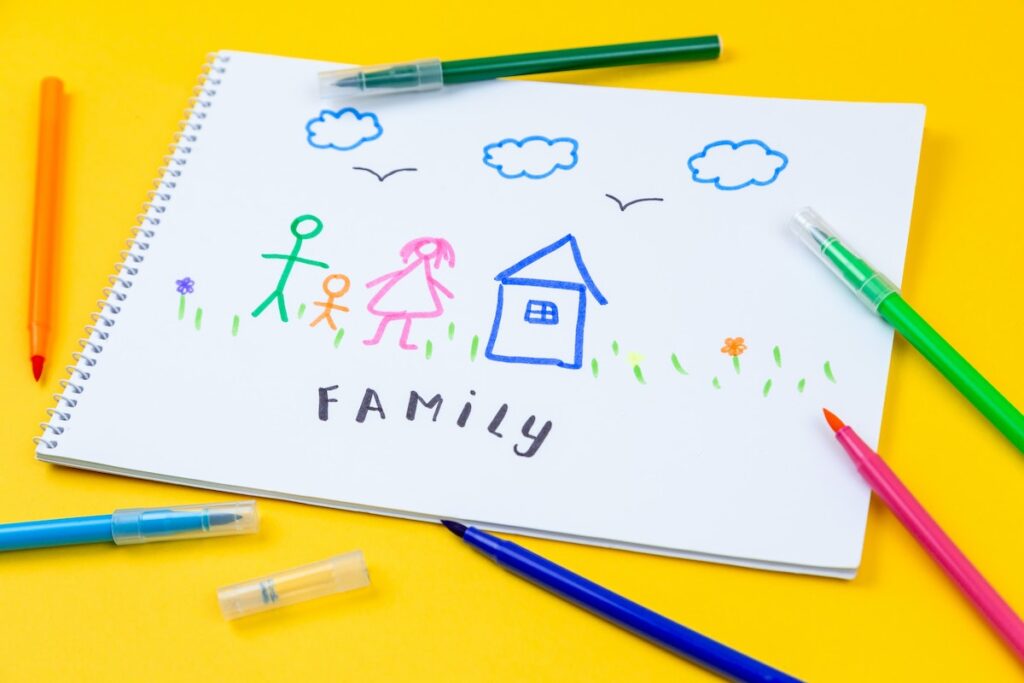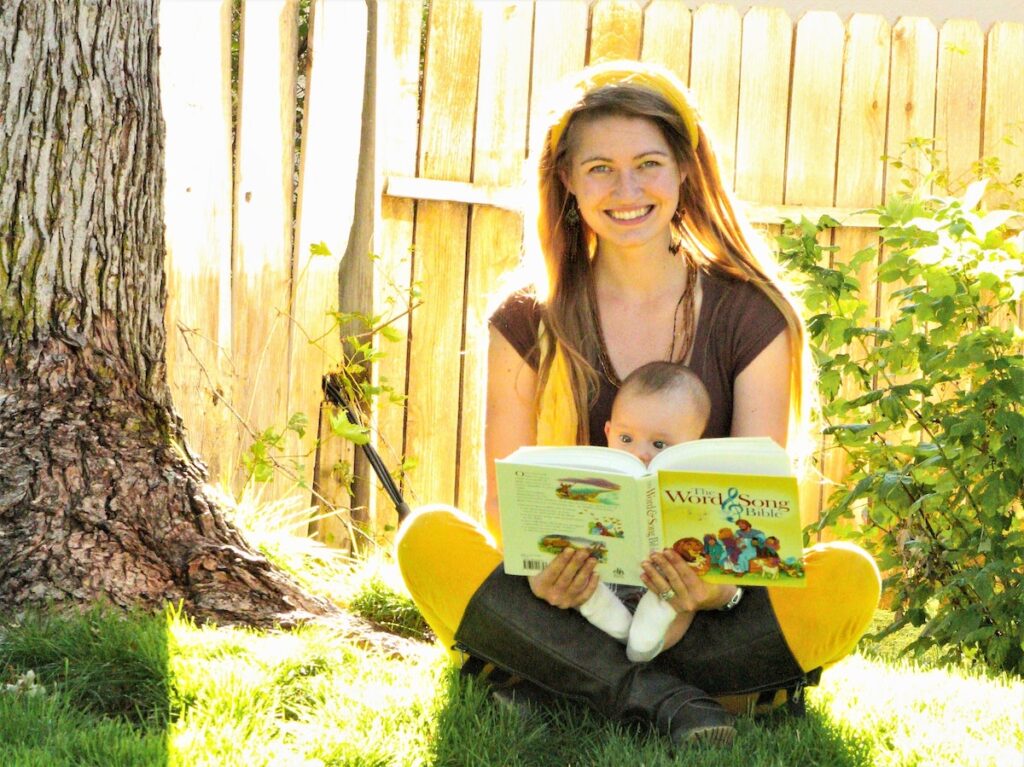
Autism is a neurodevelopmental difference that is estimated to affect around 1% of the population (Baird et al., 2006). Autistic Spectrum Condition (ASC) impacts 3 main areas of functioning: social interaction, communication, and restricted behaviour patterns. In a neurotypical world, not designed to meet the needs of autistic people, it can have an impact on a child’s social development (Le Couteur et al., 2003). In order to address the negative impact, this can have, the UK National Autism Plan for Children has advocated the need for early intervention (Le Couteur et al., 2003). The National Institute for Health and Care Excellence (NICE) recommends the use of interventions, carried out by caregivers or preschool teachers (NICE, 2013).
Parent-led interventions (PLI) for ASC tend to focus on 3 main areas:
- the core symptoms of ASC,
- the associated issues that often accompany it such as challenging behaviour and poor sleep, and
- parental stress and coping strategies.
A Cochrane Review of existing evidence has shown that parent-led interventions can have a positive impact on young children with ASC (Oono et al., 2013). Similar findings were reported on PLI delivered through self-guided websites which demonstrated an improvement in social behaviour and communications skills (Parsons et al., 2017). Unfortunately, in both cases, the lack of common outcome measures limited the validity and applicability of the research (Oono et al., 2013; Parsons et al., 2017). A larger, therefore more reliable (Black et al., 2018) study exploring Parent Training (PT) suggested benefits for parents with improved ability to manage behaviours leading to a reduction in stress (Dawson-Squibb, 2020). Group-based training was found to be especially effective as it provided social support for parents (O’Donovan, 2019).
Research into the managing of the problematic behaviours associated with ASC has led to parent-led Functional Communication Training (FCT) being introduced as evidence-based practice (National Autism Centre, 2015). FCT involves parents or caregivers identifying the purpose of challenging behaviour, teaching an alternative way of communicating this need and rewarding this by providing the requirement, whilst withholding this when problematic behaviour is used (Tiger et al., 2008). Across a number of studies FCT has been shown to reduce challenging behaviour (Gerow, 2018), however, there is yet limited information as to how closely parents followed the programme or the long-term impact (Gerow, 2018).
Due to the lack of evidence, it is difficult to accurately assess the reliability and validity of data about parent-led interventions for autism. The aim of a recent systematic review and meta-analysis is to evaluate and compare interventions (Deb et al, 2020). The review focuses on the effectiveness in addressing the core ASD symptoms, associated problematic behaviours, and parental stress.

This review (Deb et al, 2020) aims to evaluate the effectiveness of parent-led interventions to address ASC symptoms, problematic behaviours and parental stress.
Methods
Four electronic databases including CINAHL, EMBASE, MEDLINE and PsycINFO were searched for randomised controlled trials that evaluated the effectiveness of training for parents of children with Autistic Spectrum Condition (ASC). The quality and risk of bias within the studies were closely monitored from the outset using a Cochrane checklist (Higgins & Thomas, 2019).
Using the following criteria, 17 papers of 15 studies were selected:
- Participants in the intervention group were all parents of children with a formal diagnosis of ASC
- Training, group or individual, was provided by trained professionals, and support was provided after, either in person or remotely
- Studies needed to have measurable outcomes including ASC core symptoms such as:
- social interaction
- communication problems
- behavioural concerns including repetitive or restricted patterns of behaviour
- obsessive or restricted interests or activities
- sleep problems
- Parental coping skills and stress levels needed to have been measured.
Results
The interventions focused on functioning in 3 areas:
1. Language and communication
Three different programmes focused on improving language and communication:
- Social Pragmatic Joint Attention Focused Parent Training (Drew et al., 2002; Oosterling et al, 2010),
- Pivotal Response Treatment [PRT] (Gengoux, 2019; Jocelyn, 1998; Nefdt, 2010), and
- Early Start Denver Model, (Rogers et al., 2012).
All programmes showed promise in improving the trajectory of language development for autistic children but PRT training was found to be particularly effective. This was due to increasing parents’ confidence in supporting their children, which in turn led to greater improvement in their communication (Gengoux, 2019 Nefdt, 2010). The Early Start Denver Model, a form of PRT programme also revealed good results (Rogers, 2012).
2. Interaction and play
The studies demonstrated that preschool children using DIR/Floor Time™ made significant improvements in their functional emotional capacities when it was used for around 15 hours a week for 3 months. A further reported benefit was improved parenting skills leading to reduced stress (Ho et al., 2020; Pajareya & Nopmaneejumruslers, 2011).
3. Behaviour management
Some RCTs focused specifically on parent training for autistic children who display disruptive behaviour (Bearss, 2015). Throughout the training, parents were taught behavioural strategies to use with their child which led to a 47.7% improvement on the Aberrant Behaviour Checklist-Irritability (ABC-I) subscale (Amann, 1985), a 55% improvement on the Home Situations Questionnaire-ASD (Chowdhury et al., 2010), and a 68.5% improvement on the Clinical Global Impression-Improvement (CGI-I) scale (Guy, 1976).
Parental education which ran alongside the behaviour management intervention also proved to be effective, with the positive impact still being demonstrated in the 6-month follow-up (Tellegen, 2014; Tonge, 2014). This is supported by other psychoeducation programmes which have also reported lasting behavioural benefits (Sofronoff, 2002) and improvements in problematic sleep (Marlow et al., 2014). Monitoring of child body movement along with parental questionnaires revealed improvements in both insomnia and time taken to get to sleep. This is significant as sleep-related problems are common in children with ASC and can have an impact on behaviour. Education, delivered through workshops and home visits, also demonstrated high levels of success in reducing parental stress. Increased knowledge and understanding of ASC, led to increased feelings of competence and less stress and strain (Jocelyn, 1998; Keen et al., 2010; Iadarola et al., 2018).

Randomised controlled trials on parent-led interventions showed that both training and psychoeducation were effective at improving the functioning and behaviour of children with an autism diagnosis.
Conclusions
Overall, the results show that there are clinically significant positive outcomes when comparing the parent-led interventions with the control group. DIR/Floortime™, Parent Focussed Training, and Pivotal Response Training Forest all demonstrated improvements in Autistic Spectrum Condition (ASC) core symptoms, including associated challenging behaviour, alongside a reduction in parental stress.
It is difficult to make comparisons between the interventions due to differences in the design of the studies. It is also important to remember that autism is a spectrum disorder and children have different strengths and weaknesses.
It is, therefore, suggested that Parent Training needs to be fine-tuned to the child’s profile to be most effective.

The results of this systematic review and meta-analysis indicate that parent-led interventions for autism can have clinically significant benefits for children, young people and parents.
Strengths and limitations
The review of the evidence was comprehensive and well-conducted. However, the differences in the nature of the interventions, delivery methods, timeframe, variation in the type of intervention received by control groups, and differences in follow-up, create a difficulty to draw any meaningful conclusions. All the trials relied heavily on tools to measure the impact of interventions which makes it difficult to assess the parental experience of the training and their perceptions of its impact.

The differences in the design of the studies included in the systematic review, create a difficulty to meaningfully interpret the findings and draw concrete conclusions about the interventions.
Implications for practice
The review supports evidence that there is much potential for training parents of autistic children in order to educate and equip them with the knowledge and skills necessary to help support their children. A common feature in response to the training was that knowledge of what to expect and how to respond enabled them to respond with confidence, leading to less stress. This suggests that education about areas of the spectrum and training on methods to effectively manage these, would be helpful, this is especially the case with problematic behaviours and sleep disturbance.
Standardisation of what is meant by ‘parental training’ would help clinicians make meaningful comparisons about the changes required in practice. Qualitative research on parental experiences would help to highlight the aspects of training that are most needed, so that an assessment of their clinical and economic effectiveness could be made.

Education about the autistic spectrum with practical training on methods to manage these would be helpful for parents. Standardisation of ‘parental training’ would assist in drawing meaningful conclusions from the research.
Conflicts of interest
None.
Links
Primary paper
Deb, S. S., Retzer, A., Roy, M., Acharya, R., Limbu, B., & Roy, A. (2020). The effectiveness of parent training for children with autism spectrum disorder: a systematic review and meta-analyses. BMC psychiatry, 20(1), 583.
Other references
Aman, M. G., Singh, N. N., Stewart, A. W., & Field, C. J. (1985). Psychometric characteristics of the aberrant behavior checklist. American journal of mental deficiency, 89(5), 492–502.
American Psychiatric Association. (1994). DSM-IV-TR: Diagnostic and Statistical Manual of Mental Disorders Fourth Edition Text Revision.
Baird, G., Simonoff, E., Pickles, A., Chandler, S., Loucas, T., Meldrum, D., & Charman, T. (2006). Prevalence of disorders of the autism spectrum in a population cohort of children in South Thames: the Special Needs and Autism Project (SNAP). Lancet (London, England), 368(9531), 210–215.
Bearss, K., Johnson, C., Smith, T., Lecavalier, L., Swiezy, N., Aman, M., McAdam, D. B., Butter, E., Stillitano, C., Minshawi, N., Sukhodolsky, D. G., Mruzek, D. W., Turner, K., Neal, T., Hallett, V., Mulick, J. A., Green, B., Handen, B., Deng, Y., Dziura, J., … Scahill, L. (2015). Effect of parent training vs parent education on behavioral problems in children with autism spectrum disorder: a randomized clinical trial. JAMA, 313(15), 1524–1533.
Black, M. E. & Therrien, W. J. (2018). Parent training programs for school-age children with autism: A systematic review. Remedial and Special Education 39(4):243–56.
Chowdhury, M., Aman, M. G., Scahill, L., Swiezy, N., Arnold, L. E., Lecavalier, L., Johnson, C., Handen, B., Stigler, K., Bearss, K., Sukhodolsky, D., & McDougle, C. J. (2010). The Home Situations Questionnaire-PDD version: factor structure and psychometric properties. Journal of intellectual disability research: JIDR, 54(3), 281–291.
Dawson-Squibb, J. J., Davids, E. L., Harrison, A. J., Molony, M. A., & de Vries, P. J. (2020). Parent Education and Training for autism spectrum disorders: Scoping the evidence. Autism : the international journal of research and practice, 24(1), 7–25.
Drew, A., Baird, G., Baron-Cohen, S., Cox, A., Slonims, V., Wheelwright, S., Swettenham, J., Berry, B., & Charman, T. (2002). A pilot randomised control trial of a parent training intervention for pre-school children with autism. Preliminary findings and methodological challenges. European child & adolescent psychiatry, 11(6), 266–272.
Gengoux, G. W., Abrams, D. A., Schuck, R., Millan, M. E., Libove, R., Ardel, C. M., Phillips, J. M., Fox, M., Frazier, T. W., & Hardan, A. Y. (2019). A Pivotal Response Treatment Package for Children With Autism Spectrum Disorder: An RCT. Pediatrics, 144(3), e20190178.
Gerow, S., Hagan-Burke, S., Rispoli, M., Gregori, E., Mason, R., & Ninci, J. (2018). A Systematic Review of Parent-Implemented Functional Communication Training for Children With ASD. Behavior modification, 42(3), 335–363.
Guy, W. (1976). ECDEU Assessment Manual for Psychopharmacology: Publication ADM 76–338. Washington, DC: US Dept of Health, Education, and Welfare; p. 218–22.
Hardan, A. Y., Gengoux, G. W., Berquist, K. L., Libove, R. A., Ardel, C. M., Phillips, J., Frazier, T. W., & Minjarez, M. B. (2015). A randomized controlled trial of Pivotal Response Treatment Group for parents of children with autism. Journal of child psychology and psychiatry, and allied disciplines, 56(8), 884–892.
Higgins, J. & Thomas, J. (2019). Cochrane Handbook for Systematic Reviews of Interventions, version 6. Retrieved from www.cochrane.org.
Ho, M., & Lin, L. (2020) Efficacy of parent-training programs for preschool children with autism spectrum disorder: A randomized controlled trial. Research in Autism Spectrum Disorders, 71:101495.
Jocelyn, L. J., Casiro, O. G., Beattie, D., Bow, J., & Kneisz, J. (1998). Treatment of children with autism: a randomized controlled trial to evaluate a caregiver-based intervention program in community day-care centers. Journal of developmental and behavioral pediatrics : JDBP, 19(5), 326–334.
Keen, D., Couzens, D., Muspratt, S., & Rodger S. (2010). The effects of a parent-focused intervention for children with a recent diagnosis of autism spectrum disorder on parenting stress and competence. Research in Autism Spectrum Disorder, 4:229–41.
Iadarola, S., Levato, L., Harrison, B., Smith, T., Lecavalier, L., Johnson, C., Swiezy, N., Bearss, K., & Scahill, L. (2018). Teaching Parents Behavioral Strategies for Autism Spectrum Disorder (ASD): Effects on Stress, Strain, and Competence. Journal of autism and developmental disorders, 48(4), 1031–1040.
Le Couteur, A., Baird, G., & Mills, R. (2003). The National Autism Plan for Children (NAPC). London: National Autistic Society.
Lord, C., Risi, S., Lambrecht, L., Cook, E. H., Jr, Leventhal, B. L., DiLavore, P. C., Pickles, A., & Rutter, M. (2000). The autism diagnostic observation schedule-generic: a standard measure of social and communication deficits associated with the spectrum of autism. Journal of autism and developmental disorders, 30(3), 205–223.
Luyster, R., Gotham, K., Guthrie, W., Coffing, M., Petrak, R., Pierce, K., Bishop, S., Esler, A., Hus, V., Oti, R., Richler, J., Risi, S., & Lord, C. (2009). The Autism Diagnostic Observation Schedule-toddler module: a new module of a standardized diagnostic measure for autism spectrum disorders. Journal of autism and developmental disorders, 39(9), 1305–1320.
Malow, B. A., Adkins, K. W., Reynolds, A., Weiss, S. K., Loh, A., Fawkes, D., Katz, T., Goldman, S. E., Madduri, N., Hundley, R., & Clemons, T. (2014). Parent-based sleep education for children with autism spectrum disorders. Journal of autism and developmental disorders, 44(1), 216–228.
National Autism Centre. (2015). Findings and conclusions: national standards project, phase 2. Retrieved from https://www.nationalautismcenter.org/national-standards-project/phase-2/
National Institute for Health and Care Excellence. (2013). AUTISM: The management and support of children and young people on the autism spectrum. National Clinical Guideline Number 170. London: The British Psychological Society and The Royal College of Psychiatrists.
Nefdt, N., Koegel, R., Singer, G., Gerber, M. (2010) The use of a self-directed learning program to provide introductory training in pivotal response treatment to parents of children with autism. Journal of Positive Behaviour Interventions, 12(1):23–32.
O’Donovan, K.L , Armitage, S., Featherstone, J., McQuillin, L., Longley, S., & Pollard, N. (2019) Group-based parent training interventions for parents of children with autism Spectrum disorders: A literature review. Journal of Autism and Developmental Disorders 6(1):85–95.
Oono, I. P., Honey, E. J., & McConachie, H. (2013). Parent-mediated early intervention for young children with autism spectrum disorders (ASD). The Cochrane database of systematic reviews, (4), CD009774.
Oosterling, I., Visser, J., Swinkels, S., Rommelse, N., Donders, R., Woudenberg, T., Roos, S., van der Gaag, R. J., & Buitelaar, J. (2010). Randomized controlled trial of the focus parent training for toddlers with autism: 1-year outcome. Journal of autism and developmental disorders, 40(12), 1447–1458.
Pajareya, K., & Nopmaneejumruslers, K. (2011). A pilot randomized controlled trial of DIR/Floortime™ parent training intervention for pre-school children with autistic spectrum disorders. Autism : the international journal of research and practice, 15(5), 563–577.
Parsons, D., Cordier, R., Vaz, S., & Lee, H. C. (2017). Parent-Mediated Intervention Training Delivered Remotely for Children With Autism Spectrum Disorder Living Outside of Urban Areas: Systematic Review. Journal of medical Internet research, 19(8), e198.
Rogers, S. J., Estes, A., Lord, C., Vismara, L., Winter, J., Fitzpatrick, A., Guo, M., & Dawson, G. (2012). Effects of a brief Early Start Denver model (ESDM)-based parent intervention on toddlers at risk for autism spectrum disorders: a randomized controlled trial. Journal of the American Academy of Child and Adolescent Psychiatry, 51(10), 1052–1065.
Rutter, M., Le Couteur, A., & Lord, C. (2003). ADI-R. autism diagnostic interview revised. Manual. Los Angeles: Western Psychological Services.
Sofronoff, K., & Farbotko, M. (2002). The effectiveness of parent management training to increase self-efficacy in parents of children with Asperger syndrome. Autism : the international journal of research and practice, 6(3), 271–286.
Tellegen, C. L., & Sanders, M. R. (2014). A randomized controlled trial evaluating a brief parenting program with children with autism spectrum disorders. Journal of consulting and clinical psychology, 82(6), 1193–1200.
Tiger, J. H., Hanley, G. P., & Bruzek, J. (2008). Functional communication training: a review and practical guide. Behavior analysis in practice, 1(1), 16–23.
Tonge, B., Brereton, A., Kiomall, M., Mackinnon, A., & Rinehart, N. J. (2014). A randomised group comparison controlled trial of ‘preschoolers with autism’: a parent education and skills training intervention for young children with autistic disorder. Autism: the international journal of research and practice, 18(2), 166–177.
Photo credits
- Photo by Caleb Woods on Unsplash
- Photo by Peter Burdon on Unsplash
- Photo by sofatutor on Unsplash
- Photo by Volodymyr Hryshchenko on Unsplash
- Photo by Element5 Digital on Unsplash
- Photo by Elisabeth Wales on Unsplash
